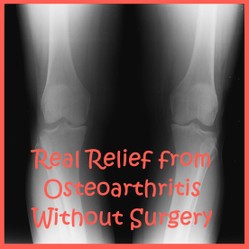Most cataracts develop naturally as you age. Half of all Australians have cataracts by age 50, and by age 75 that number increases to 70 percent. Cataract surgery usually improves vision, but sometimes stronger reading glasses or better light when doing close work is all you need.
Even so, wouldn’t you rather stay in that smaller group — the 30 percent that never gets cataracts? Making these five healthy choices can help keep cloudy lenses from spoiling your view.
Fight back with antioxidants. Antioxidants help prevent cataracts by fighting free radicals, which can damage your eyes. Try getting more of these three powerful antioxidants every day to prevent vision loss.
•Beta carotene. Found in dark green and bright orange foods like carrots, sweet potatoes, apricots, broccoli, and spinach, beta carotene converts to vitamin A in your body. Since too much vitamin A can be dangerous, it’s best to get this nutrient from foods rather than supplements. But if you have a hard time eating those deep-colored vegetables, taking daily multiple vitamins will supply all you need. In fact, research shows that taking multiple vitamins each day may lower your risk of developing cataracts.
•Vitamin E. A recent study found that nuclear cataracts, the most common kind, grow twice as fast in people who don’t take vitamin E supplements when compared with people who do. Some researchers say you can safely take up to 400 international units (IU) of vitamin E daily in supplement form. To get more vitamin E in your diet, add a little wheat germ oil, sunflower seeds, or dried almonds. Instead of white flour and white rice, eat whole wheat, oats, and brown rice.
•Vitamin C. Researchers conducted a study of nurses between the ages of 56 and 71. They found that those who took a vitamin C supplement for 10 years or more were 77 percent less likely to have even mild clouding of the lenses than those who weren’t taking supplements. It seems the amount of vitamin C in the supplement is less important than the number of years you take it. The advantage wasn’t as great for those who took it for less than 10 years. To get more vitamin C from food, eat oranges, lemons, tangerines, strawberries, broccoli, brussels sprouts, and sweet red peppers.
Savor an exotic spice. Curcumin, a natural antioxidant found in the spice turmeric, may help prevent cataracts. Turmeric is an essential ingredient of curry powder, which is used in Indian cooking. Give this flavorful spice a try — your taste buds will thank you and so will your eyes.
Go easy on the salt. If you are salt-sensitive, too much salt in your diet can cause your blood pressure to rise and interfere with the blood vessels in your eyes. Most people should limit their salt intake to 2,400 milligrams (mg) a day. If you have high blood pressure, don’t get more than 2,000 mg. Learn to cook without salt. Use spices to add a little zing to your meals. Make wise choices when eating out, and read labels for sodium content when you’re at the grocery store.
Think low-fat. Protecting your eyes is another reason to eat less fat. To keep your daily fat calories to 30 percent or less, avoid fried foods, choose low-fat versions of your favorite high-fat foods, and use a nonstick cooking spray when preparing meals. If you eat more fruits, vegetables, and whole grains, you’ll automatically eat less fat.
Wear sunglasses with UV protection. Avoid spending too much time in bright sunlight. When you go outside, wear sunglasses and a wide-brimmed hat and stay in the shade. This is especially important if you live near the equator or at a high elevation.
If you have questions about cataracts or other eye health conditions, please call Cataract Brisbane for more information.
Autobiography
Elizabeth is a renowned leader in the space of Health and Mental Wellness topics. Her work has appeared on more than a dozen influential sites and blogs. Her articles both focus on providing valuable information and an entertaining read that her readers enjoy. More about her work on - ELIZABETHMARKS.me

 10 Things You Need To Have Clean and Spotless Clotheson 10/28/2021
10 Things You Need To Have Clean and Spotless Clotheson 10/28/2021
 10 Business Ideas For Newbies That Will Thriveon 10/27/2021
10 Business Ideas For Newbies That Will Thriveon 10/27/2021

Comments
Thanks for this article. I am seventy and it is relevant to me.
I meant to write "recommendations" -- plural. Anyway, I'm saving this article. Thank you!
This is great advice! I'm already following some of your recommendation, and I'll take on board the others.
RobertKeith, Thank you for your fine articles, all of which I read over the course of the last two years.
This is the most helpful, succinct write-up I've come across for alleviating and perhaps even preventing cataracts. It's my favorite, along with Dr. Julius Shulman's book on cataract surgery. You mention sunflower seeds as a source of vitamin A so I hope stove-top cooking with sunflower oil counts. It won't matter, I expect, if it doesn't since it's used when meals include brown rice and since almonds are a favorite here.